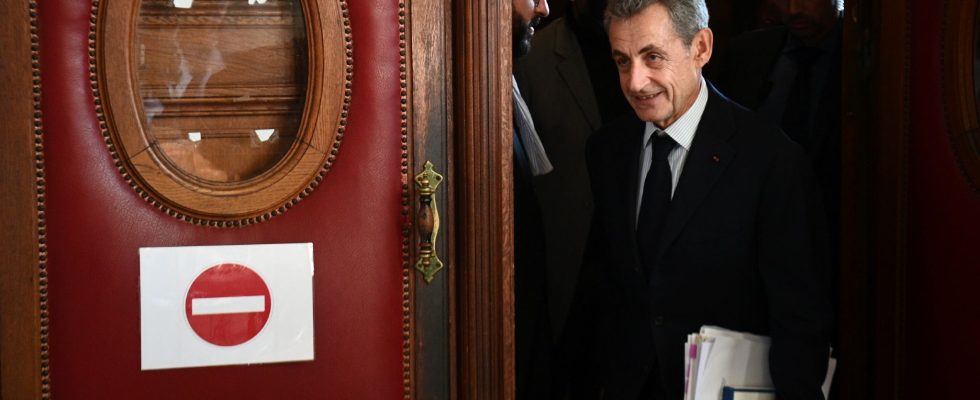Two years after an unprecedented conviction for a former head of state, the Paris Court of Appeal ruled on Wednesday May 17 in the so-called “Bismuth” case, on the fate of Nicolas Sarkozy, his lawyer history and a former high magistrate. The former President of the Republic was sentenced on appeal in Paris to three years in prison, including one year to be executed under an electronic bracelet, for corruption and influence peddling in the wiretapping affair, an unprecedented sanction for a former head of state.
The Paris Court of Appeal confirmed the sentence pronounced at first instance, on March 1, 2021, against Nicolas Sarkozy, 68, who listened to the decision sitting on the bench of the defendants, his jaw clenched. He is the first former president to be sentenced to prison, his former mentor Jacques Chirac having been given a two-year suspended prison sentence in 2011 in the case of fictitious jobs in the city of Paris.
A ban on civil rights
His historic lawyer Thierry Herzog and the former senior magistrate Gilbert Azibert were also found guilty of having entered into a “corruption pact” with Nicolas Sarkozy in 2014 and sentenced to the same sentence.
The Court of Appeal also pronounced a three-year ban on civil rights for Nicolas Sarkozy, which makes him ineligible, as well as a three-year ban on practicing for Me Herzog. On December 13, the public prosecutor’s office demanded a three-year suspended prison sentence for the three defendants, who have always denied any corruption.
The former strongman of the right contested “with the greatest force” during the appeal trial these accusations, reaffirming at the bar that he had “never corrupted anyone”.
This decision was expected when Nicolas Sarkozy will be retried on appeal in the fall in the “Bygmalion” case and he is under the threat of a resounding third trial: the PNF on Thursday requested his referral to correctional in the case of suspicions of Libyan financing of his presidential campaign in 2007. This judicial file, which also involves three former ministers of the former president, is indirectly at the origin of the case of wiretapping.
“Connecting” Sarkozy’s two lines
At the end of 2013, the examining magistrates in charge of the investigation into suspicions of Libyan corruption had decided to “connect” the two lines of Nicolas Sarkozy. They then discover the existence of a third, unofficial line.
Purchased on January 11, 2014 under the identity of “Paul Bismuth” – a high school acquaintance of Me Herzog – it is dedicated to exchanges between the ex-president and his lawyer and longtime friend.
Their sometimes flowery telephone conversations, broadcast for the first time during the second trial last December, are at the heart of the case.
For the prosecution, these wiretaps reveal a corruption pact made with Gilbert Azibert, then general counsel at the Court of Cassation, the highest court of the French judicial order.
The latter is accused of having worked behind the scenes to influence an appeal filed by Nicolas Sarkozy in the Bettencourt affair, in exchange for a “boost” for an honorary position in Monaco.
From the outset, the lawyers for the defendants have claimed that these wiretaps are illegal, because they believe they undermine the secrecy of exchanges between a lawyer and his client. Critics hitherto dismissed by the judges.
Another cardinal axis of the defense: a parallel investigation opened in 2014 by the National Financial Prosecutor’s Office. At the time, investigators suspect Nicolas Sarkozy and Thierry Herzog of having been informed that the “Bismuth” line was listened to.
To find the “mole”, the financial prosecutor’s office had examined the detailed invoices (“fadettes”) of several lawyers over a period of a few hours. The investigation was finally dismissed at the end of 2019 and transmitted to the defense in 2020.
This affair in the affair, known as the “fadettes”, led by ricochets to the referral to the Court of Justice of the Republic (CJR) of the current Keeper of the Seals Eric Dupond-Moretti for having launched administrative investigations targeting three magistrates financiers with whom he had come into conflict when he was a lawyer.
The minister lodged an appeal in cassation against this dismissal.
